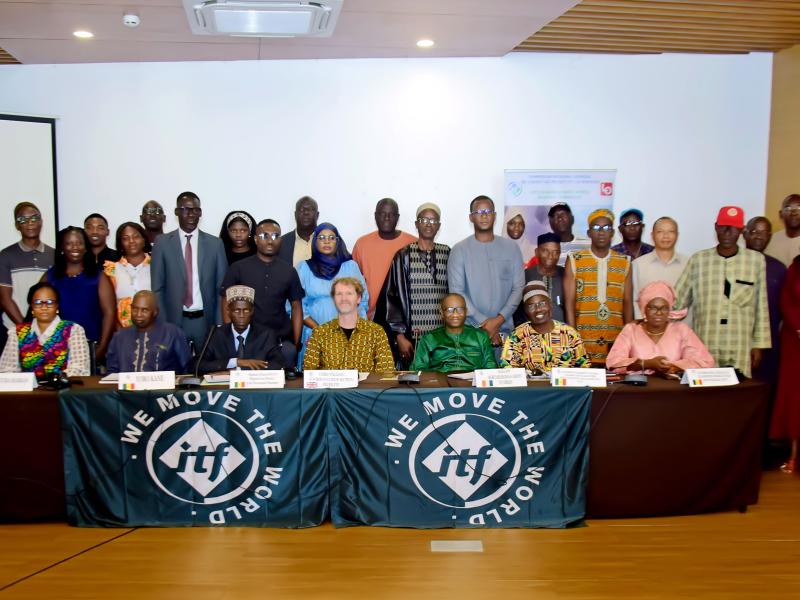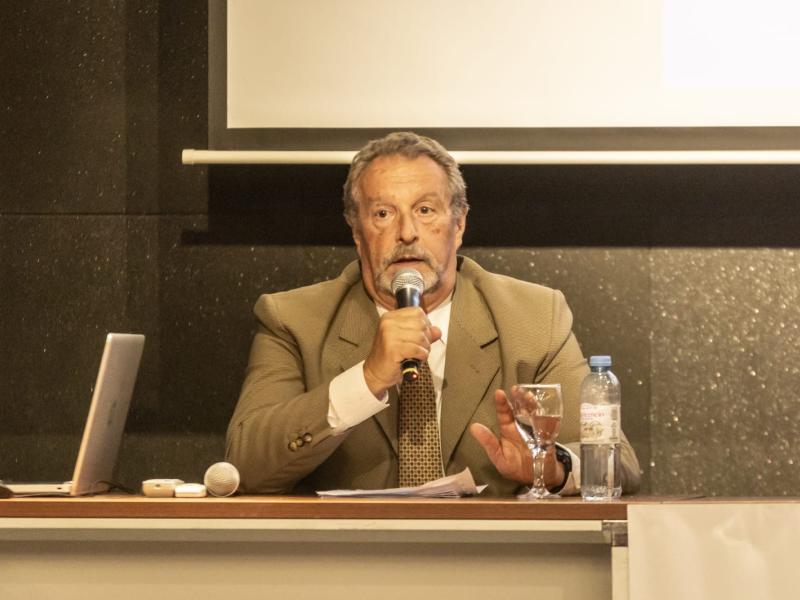Today on World Aids Day the International Transport Workers’ Federation (ITF) is urging stakeholders across the transport sector not to lose focus of HIV prevention during the Covid-19 pandemic and let slip the hard-won progress achieved thus far.
The theme of World Aids Day 2021 is “End inequalities. End AIDS.”, with a special focus on reaching people left behind. The ITF is supporting this important mission to highlight and tackle the growing inequalities in access to essential HIV services, particularly for those working in the transport sector.
The organisation is sending out a renewed call to trade unions, employers and all relevant stakeholders including government agencies across the industry, to remain steadfast in their HIV prevention, treatment and care/support efforts, while continuing to work together to combat the challenges presented by coronavirus.
Covid-19: the great unleveller
Covid-19 has further deepened existing inequalities, whether that be economic, social, cultural, and legal. Division, disparity and disregard for human rights are among the failures that allowed HIV to become and remain a global health crisis. No one disease should be fought at the expense of the other.
UNAIDS cites that overstretched health systems, loss of livelihoods, lockdowns and fewer employment opportunities resulting from the Covid-19 pandemic could increase unprotected sex, sexual violence and exploitation, transactional sex and sex work, leading to an increase in new HIV infections. Additionally, the often compromised accessibility to HIV treatment and services for transport workers operating at and across the borders of nations has been exacerbated since the COVID-19 outbreak.
While COVID-19 must continue to be addressed as a matter of urgency, the ITF is highlighting that it cannot be at the expense of HIV vulnerable transport workers who are currently facing a double crisis in the form of both the long-standing epidemic and new pandemic. There remains a shocking number of people affected by HIV worldwide. In 2020, 1,500,000 people were newly infected with HIV, and 680,000 people died from HIV-related causes, while in the same year the death toll from Covid-19 stood at 1,813,188 (although some preliminary estimates suggest the official death toll could be more). These figures help illustrate that the HIV crisis is certainly far from over.
UNAIDS and the World Health Organization (WHO) have supported mathematical modelling to establish the benefits of continuing HIV services, compared to the potential harm of additional Covid-19 transmission. The analysis illustrates that while there is some additional short-term risk of Covid-19 transmission associated with providing HIV services, the risk of additional Covid-19 deaths is at least 100 times less than the AIDS-related deaths averted by continuing those services. It is then evident that the risk of not keeping essential HIV services open results in a greater overall risk of death related to lack of prevention of HIV, access to diagnosis, and eventual treatment. The ITF is firm in its stance that these trade-offs are simply unacceptable.
HIV treatment crisis at sea
The ITF engages in a four-fold approach to HIV prevention, including an awareness programme, education and condom distribution, voluntary HIV counselling and testing, and treatment and care – all of which have been put under immeasurable strain, or even ceased, as health personnel were mobilised to refocus their energies on the immediate Covid-19 prevention, testing, tracing and care responsibilities.
Over the course of the Covid-19 pandemic we have witness a worsening crisis in the treatment and care for the seafaring community. While accessing HIV medications was difficult and inconsistent for seafarers pre-pandemic, quarantine restrictions that triggered governments to close borders and ban seafarers from stepping ashore, has undoubtedly complicated their ability to access the HIV medicines and medical treatments. Not only does this result in an unacceptable and disastrous gap in medication, the issue does not seem to be taken seriously by employers and those in charge of welfare onboard.
The ITF is in regular communication with those affected seafarers who are reaching out for help via social media, and are striving to tackle this issue on an individual basis using its network of inspectors.
Ongoing support
In light of the HIV treatment crisis onboard, the ITF is actively pursuing a number of avenues to help support and protect the health of HIV positive and vulnerable seafarers.
An example of such ongoing support includes the launch of the first network of HIV-positive seafarers in the world. Alongside the AMOSUP union based in the Philippines, the ITF facilitated the formation of Positibong Marino Incorporated Philippines (PMPI), which has been formally registered as a self-help and support group. The group works to defend the rights of HIV-positive seafarers, irrespective of their nationality, who find it difficult to get employment because of their health status.
It was of particular importance to set up such a group in the Philippines with the country witnessing a rising trend in new HIV infections and Filipino seafarers comprising the majority of the seafaring community. Throughout the Covid-19 pandemic, the ITF and PMPI is continuing to support those HIV positive seafarers who are onboard ships and in urgent need of medication.
Sharpening focus
In the short-term, the ITF is hopeful that a rapid refocus towards HIV/AIDS will bridge the inequality gap and help HIV vulnerable and positive transport workers, to receive the treatment and care they deserve unhampered by the effects of the Covid-19 pandemic.
Looking further ahead, the organisation believes that now is the time for stakeholders to review lessons learned from their handling of the Covid-19 pandemic to implement into an effective response plan for future epidemics or pandemics on the horizon. In particular, for governments and health authorities to prioritise access to HIV medications and treatment, especially for seafarers caught in the ongoing crew change crisis.
The ITF believes that the wheels need to be put in motion now to consider strategies and processes that will ensure a more rapid and effective response to new and emerging diseases, while not forgetting those already in existence, and ensuring that the marginalised in society do not get left behind.
Dr Syed Asif Altaf, ITF HIV/AIDS and Wellbeing programme co-ordinator, said: “ITF is committed to keeping seafarers healthy and happy and to erase the stigma and discrimination that workers with HIV/AIDS continue to come up against. The world has faced and is facing unprecedented challenges because of the COVID-19 pandemic, but now is not the time to lose sight of HIV/AIDS. On this World Aids Day we are urging all our stakeholders across the transport industry to remain focused in removing the economic, social, cultural and legal inequalities that perpetuate the HIV crisis - and to end the stigma and discrimination too often associated with the disease.”
Stephen Cotton, ITF General secretary, added: “Covid-19 has highlighted stark global inequalities, with the most marginalised in society being hardest hit. With our valuable transport workers often carrying out essential work across and along the borders of the world’s nations they are undoubtedly in a more vulnerable position – particularly those that are HIV positive. Stakeholders across the transport industry must start acting now to prioritise and protect those working at the edges of society, including maintaining critical HIV prevention services.”



